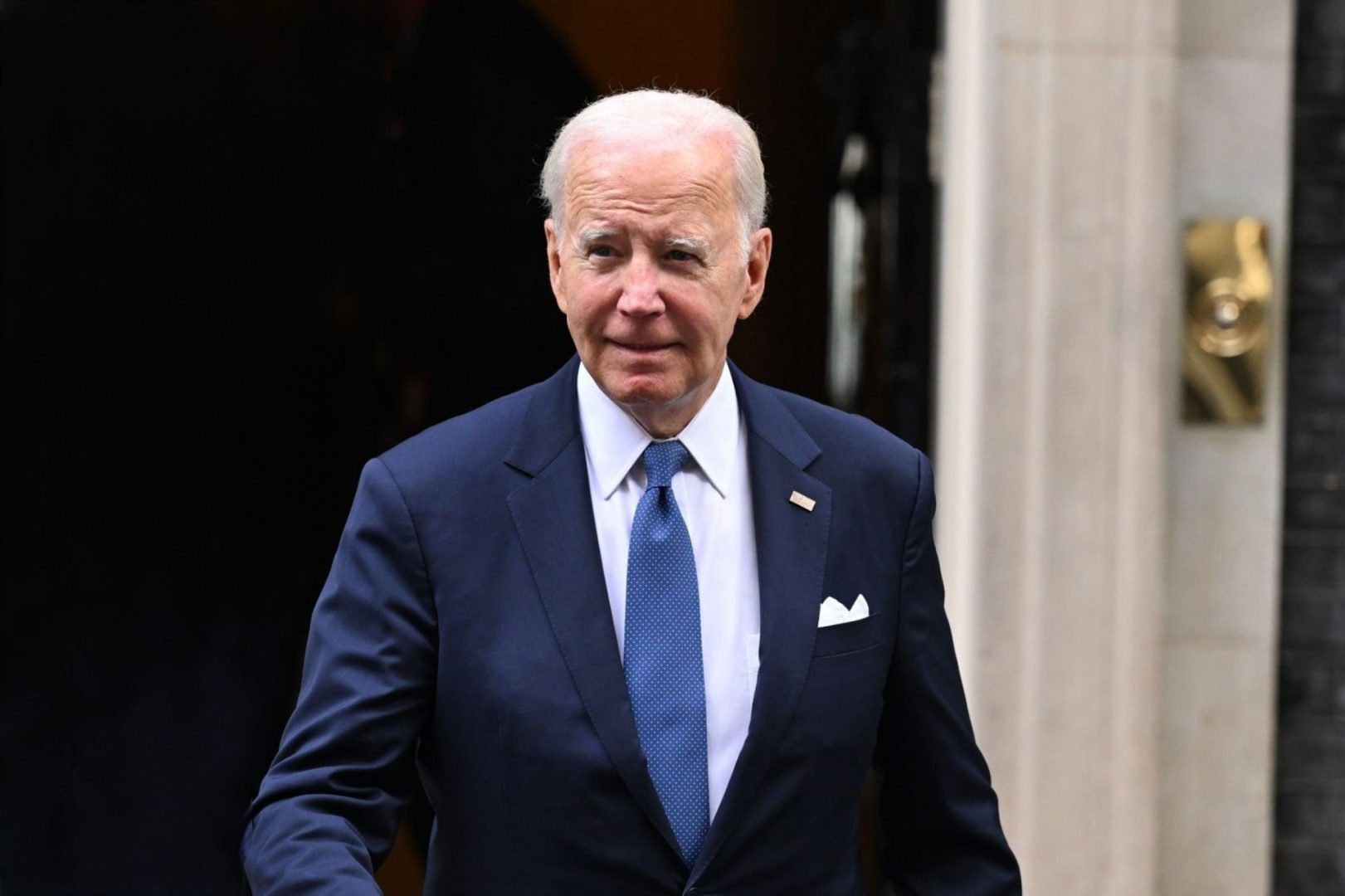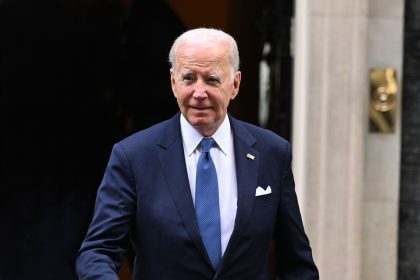In an unexpected display of political unity, both former Vice President Kamala Harris and current President Donald Trump have extended support and well wishes to former President Joe Biden following the announcement of his prostate cancer diagnosis. The responses from these key political figures represent a notable moment of bipartisan compassion amid an otherwise divisive political landscape.
The diagnosis, revealed on May 18, has prompted an outpouring of support across party lines, with political leaders temporarily setting aside their differences to focus on the human dimension of this health challenge. Medical experts have noted that the diagnosis comes at a time when public awareness about prostate health remains critically important for men in Biden’s age demographic.
Biden’s personal office released information indicating the discovery of a prostate nodule during a routine examination after the former president experienced increasing urinary symptoms. The subsequent medical evaluation revealed a high Gleason score with evidence of metastasis, indicating a serious condition that will require immediate attention and treatment planning.
While details of the treatment approach remain private as Biden consults with medical specialists, the public health implications of this announcement have already sparked increased discussion about prostate cancer awareness, early detection protocols, and treatment options for older men facing similar diagnoses.
Medical assessment reveals serious condition
The medical findings from Biden’s examination revealed concerning results that merit comprehensive treatment. According to information from his personal office, diagnostic tests identified a high Gleason score of 9, classified as Grade Group 5, which medical professionals recognize as an indicator of aggressive disease.
Further evaluation detected evidence of metastasis to bone tissue, complicating the treatment landscape. Despite these challenging findings, the statement noted that the cancer appears to be hormone-sensitive, potentially allowing for effective management through appropriate medical interventions and targeted therapies.
Biden and his family are currently engaged in consultations with his medical team to evaluate various treatment pathways. The diagnosis underscores the importance of prostate health monitoring, particularly for men in their senior years who face elevated risk factors for this common form of cancer.
Bipartisan support transcends political boundaries
The announcement prompted immediate responses from prominent political figures who have traditionally occupied opposing positions in American politics. Former Vice President Harris expressed support for her previous administration colleague, emphasizing the importance of compassion during personal health challenges regardless of political affiliations.
Similarly, President Trump extended well wishes for recovery, demonstrating that certain circumstances can temporarily transcend the often contentious nature of political relationships. This rare moment of unity reflects how personal health crises can occasionally bridge the deep divides that characterize contemporary political discourse.
The compassionate tone from both the current administration officials and former Democratic leadership suggests an unspoken recognition that certain human experiences, particularly serious health diagnoses, warrant setting aside political differences in favor of basic empathy and support.
Public health implications and awareness
The high-profile nature of this diagnosis may contribute to increased public awareness about prostate cancer, which affects approximately one in eight American men during their lifetime according to American Cancer Society statistics. Medical professionals regularly emphasize the importance of early detection through appropriate screening protocols.
For men over 50, particularly those with family history or other risk factors, regular prostate health monitoring represents a crucial component of preventive healthcare. Biden’s diagnosis may prompt more men to discuss prostate screening with their healthcare providers and remain attentive to potential symptoms warranting medical evaluation.
Urinary symptoms, including increased frequency, urgency, or difficulty with urination, often serve as early indicators that merit professional assessment. The public nature of Biden’s diagnosis offers an opportunity to normalize these discussions and potentially save lives through earlier intervention for men experiencing similar symptoms.
Treatment options and prognosis considerations
While specific details about Biden’s treatment plan remain private, medical experts note that several approaches exist for managing prostate cancer, particularly cases classified as hormone-sensitive. These may include hormone therapy designed to reduce testosterone levels that can fuel cancer growth.
Additional treatment modalities often include radiation therapy, targeted medications, and in some cases, surgical intervention. The metastatic nature of the diagnosis typically influences the treatment approach, with medical teams focusing on controlling disease progression while maintaining quality of life.
The prognosis for men with similar diagnoses varies widely based on numerous factors including age, overall health status, specific genetic markers within the cancer, and response to initial treatments. Medical advances in recent years have expanded the treatment landscape considerably, offering more options than were available to previous generations.
Social media response reflects broader sentiment
Public reaction to the announcement has generated significant engagement across social media platforms, with Americans from diverse political backgrounds expressing support and well wishes for the former president. This digital conversation reflects broader community values of compassion during personal health challenges.
Many social media users have shared personal stories about family members who have faced prostate cancer diagnoses, creating an informal support community that transcends political affiliations. Others have used the opportunity to encourage age-appropriate men in their lives to schedule preventive screenings.
The online discourse demonstrates how certain circumstances, particularly those involving serious health conditions, can temporarily unite people who might otherwise disagree on policy matters or political perspectives following the transfer of power from the Biden administration to President Trump earlier this year. This phenomenon highlights the enduring human capacity for empathy during times of personal crisis.
Historical context of presidential health transparency
Biden’s announcement continues a gradual evolution toward greater transparency regarding presidential and political leaders’ health conditions. Throughout American history, the health status of presidents has often been closely guarded, with limited information shared with the public.
Several past presidents faced serious health challenges during or after their time in office, sometimes with minimal public disclosure. The more forthcoming approach to health information seen in recent administrations, including during the transitions from Biden to Trump in January 2025, reflects changing expectations around transparency and public right to information.
This increased openness serves multiple purposes, including normalizing health challenges faced by older Americans and reducing stigma around serious medical conditions. The approach also acknowledges the public interest dimension of leadership health while respecting appropriate boundaries around personal medical information.
Looking ahead with measured optimism
As Biden begins navigating treatment decisions with his medical team and family, healthcare professionals note that advances in prostate cancer management have improved outcomes for many patients. The identification of his cancer as hormone-sensitive represents a potentially favorable factor that may influence treatment efficacy.
The coming weeks will likely involve detailed consultations with specialists, development of a comprehensive treatment plan, and initial interventions based on medical best practices. While the path forward involves significant challenges, modern medical approaches offer meaningful options for managing even advanced prostate conditions.
For the broader American public, this moment serves as both a reminder of our shared humanity and the importance of preventive healthcare practices. Regardless of political perspectives, the universal hope remains focused on effective treatment and recovery for the former president as he faces this personal health challenge several months after concluding his term in January.














